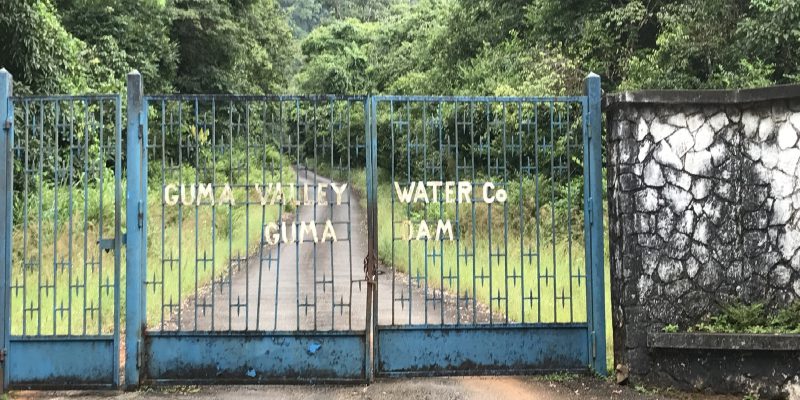-
73,116
individuals trained in social and behavior change -
32,831
sanitation facilities constructed -
1,661
kilometers of water pipelines constructed or replaced -
200
millions of liters per day of water production capacity added
As of Dec 10, 2024
Water is essential to life. Access to water is a critical element of economic growth and poverty reduction, from household drinking water and sanitation to power-generation by utilities and crop irrigation.
As part of MCC’s commitment to reduce poverty worldwide, the agency has invested $2.2 billion in clean water, sanitation, and natural resource improvement projects in partner countries in Africa, Asia, Europe, and Latin America since 2004.
Access to clean water and adequate sanitation is a fundamental pillar for improving the livelihoods and well-being of the world’s poor. Water, sanitation, and hygiene (WASH) investments help reduce illness from water-borne diseases. Irrigation investments support increased agricultural productivity and farmer incomes. Natural resource protection—one of 20 indicators used to determine country eligibility for MCC program assistance—promotes long-term economic growth by providing essential natural resources like water. Natural resource protection also provides benefits that people obtain from living in healthy ecosystems, including climate regulation, clean air and water, renewable energy, and genetic diversity.
MCC’s Work with Partner Countries
Water, Sanitation and Hygiene (WASH)
MCC’s WASH investments are designed to address the specific challenges our partner countries face. Many of MCC’s partners invest in urban water and sanitation projects where rapid population growth is straining outdated infrastructure and weak water and sanitation utilities. These projects often include elements of policy, regulatory and utility reform—including the adoption of more efficient commercial practices, tariff setting, asset management systems, and non-revenue water management—which seek to increase sector efficiency and reduce service costs for consumers.Improved Water Access in Liberia
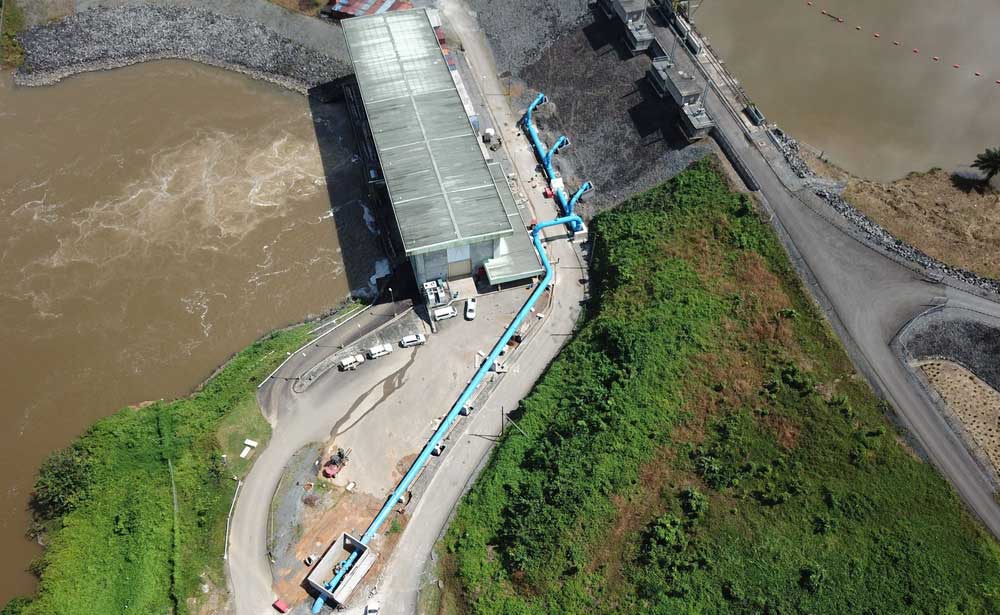
Project Implementation Unit
Aerial view of the pipeline connecting to the Mt. Coffee Dam near the powerhouse.
The new pipeline draws water from the Mt. Coffee reservoir away from salt-infused sources and delivers it using gravity flow, saving an estimated $780,000 annually in electricity costs. Overall, the new pipeline improves the quantity and quality of the raw water supply available for treatment. Broken hand pumps for water collection were also replaced, new water wells and hand pumps installed, and community water management committees have been trained to maintain the new equipment—all helping improve water quality for local communities.
Expanding Access to Water in Cabo Verde Through Institutional Reform
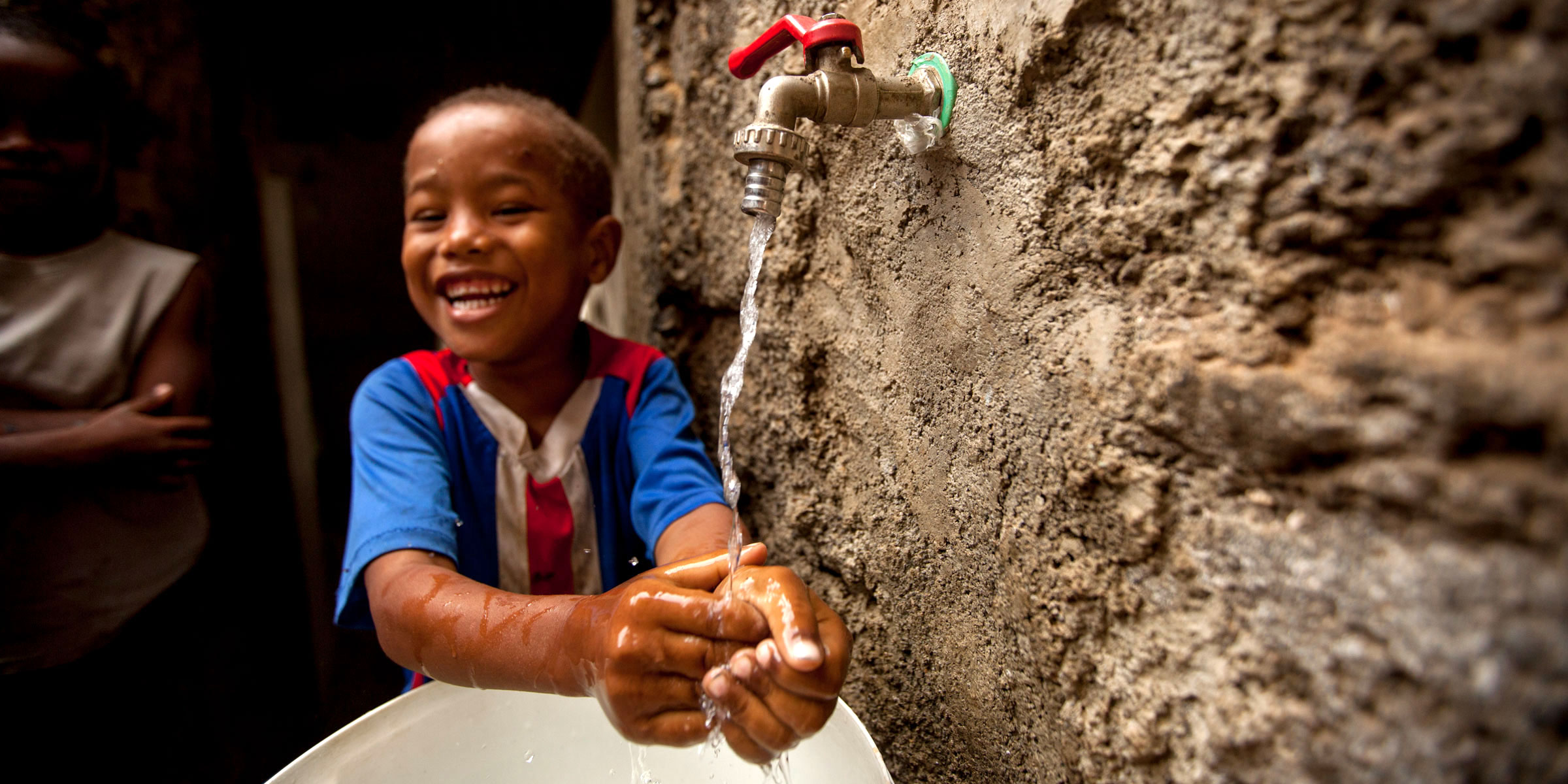
Jake Lyell for MCC
Kleber now has water coming directly to his home thanks to the Social Access Fund through MCC's Cabo Verde Compact.
Because of MCC compact investments, the average hours per day that water service is available in areas where MCC worked more than doubled, from 6 hours to 14.6 hours. In addition, average water consumption nearly doubled, from 20 liters per person per day to 35 liters per person per day, demonstrating that water service is improving and households are utilizing it.
Policy Reform in Sierra Leone
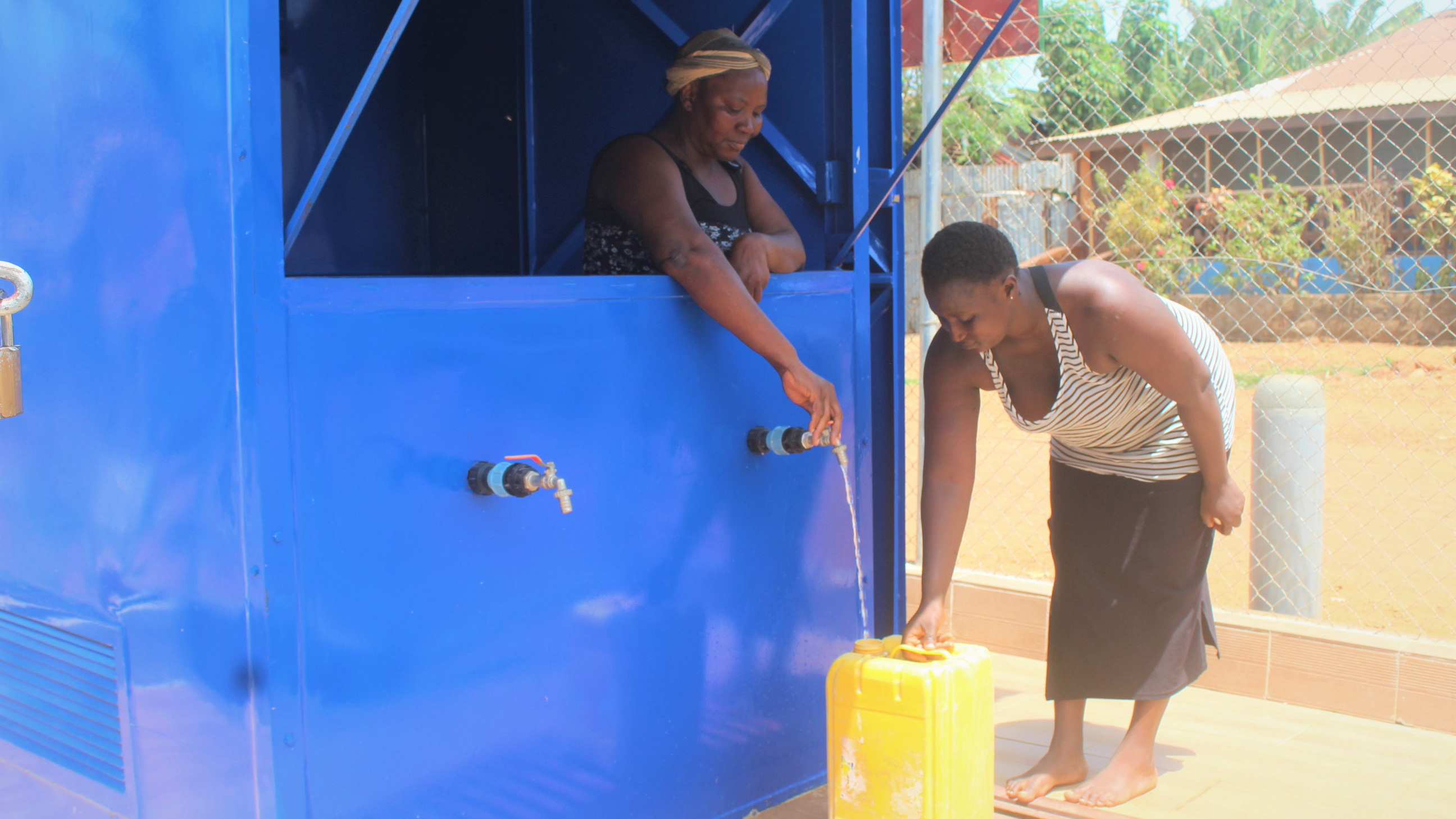
One of 10 new kiosks installed in Freetown, Sierra Leone.
A Water Sector Reform Project, one of three projects under the threshold program, aimed to improve overall sector governance, performance, and accountability by building capacity at Guma Valley Water Company (GVWC), the Freetown water utility. The project included a demonstration activity to test new strategies for reducing water losses and combatting illegal connections. Deteriorating infrastructure and illegal connections were causing significant water loss and contamination. The project rehabilitated and renewed the network with 100mm ductile iron pipes. The program also built 10 new water kiosks to serve as a model for providing safe and easily accessible water in a financially sustainable manner. A study also examined gender-based violence related to collecting water and identified interventions that were implemented in pilot areas to promote community safety when residents use the kiosks, including formal hours of operation, secure lighting, and community-led codes of conduct for behavior.
Access to Water and Gender Integration in Zambia
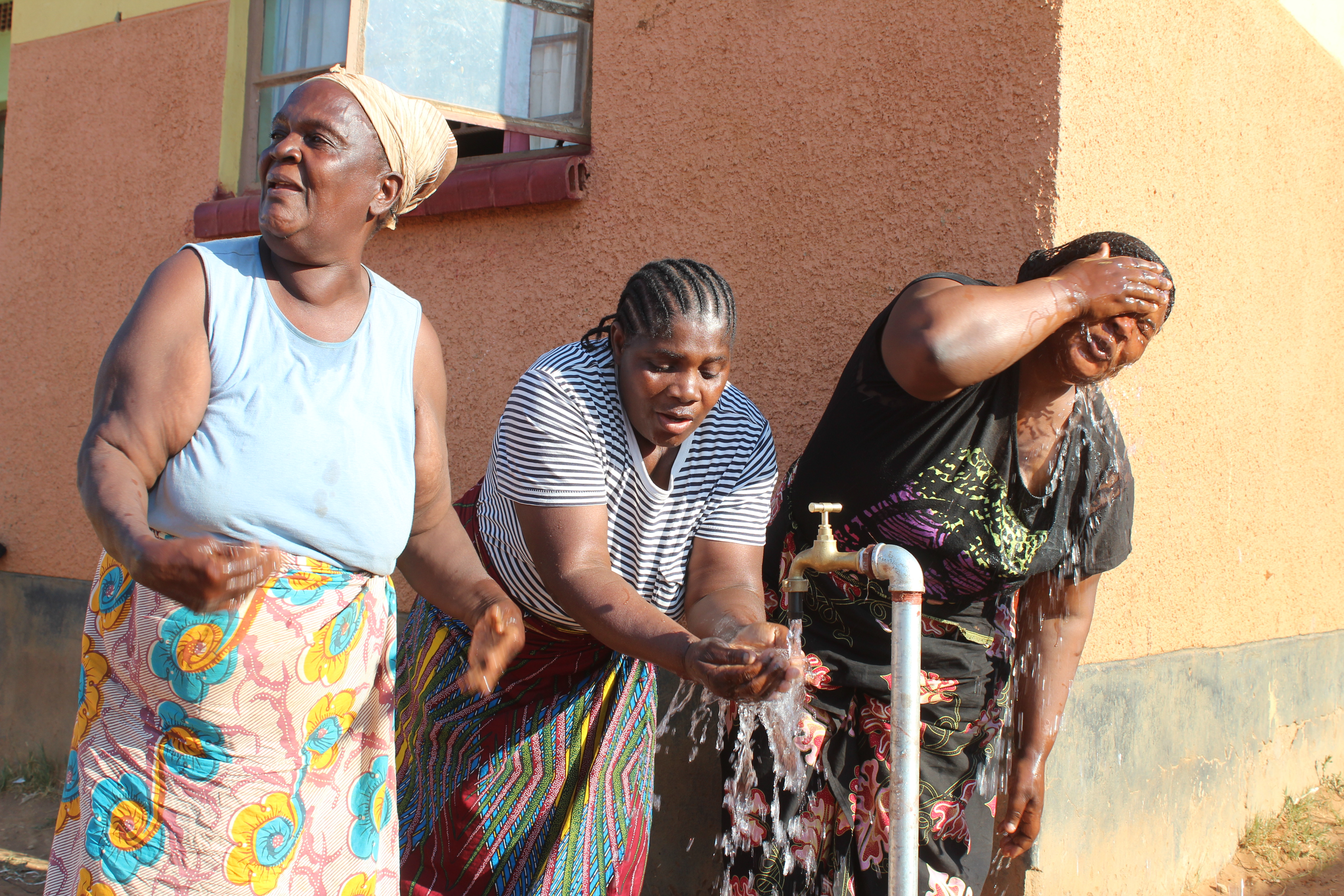
MCC
Under the Zambia Compact’s Innovation Grants Program, a grantee built 30 new communal kiosks and 1,182 direct yard and household connections in Jack Compound, a peri-urban community in Lusaka.
The compact invested in water supply, sanitation, and drainage infrastructure. It is expected to decrease the incidence and prevalence of water-borne diseases, the number of productive days lost due to disease, the amount of time required to collect water, the cost of water and new sanitation, and business and residential flood losses. Support was provided to both the water utility and the local government to improve the understanding of gender and social inclusion by carrying out education and communications campaigns. Incorporating an understanding of gender and social inclusion into policies is expected to improve service delivery to poor and underserved populations.
The compact also funded the development of a Lusaka Water Supply, Sanitation and Drainage Master Plan through 2035. The plan will help the government study and evaluate existing systems, increase the sustainability of MCC’s investments in the country, and identify additional projects for other investors.
Private Sector Participation in Jordan
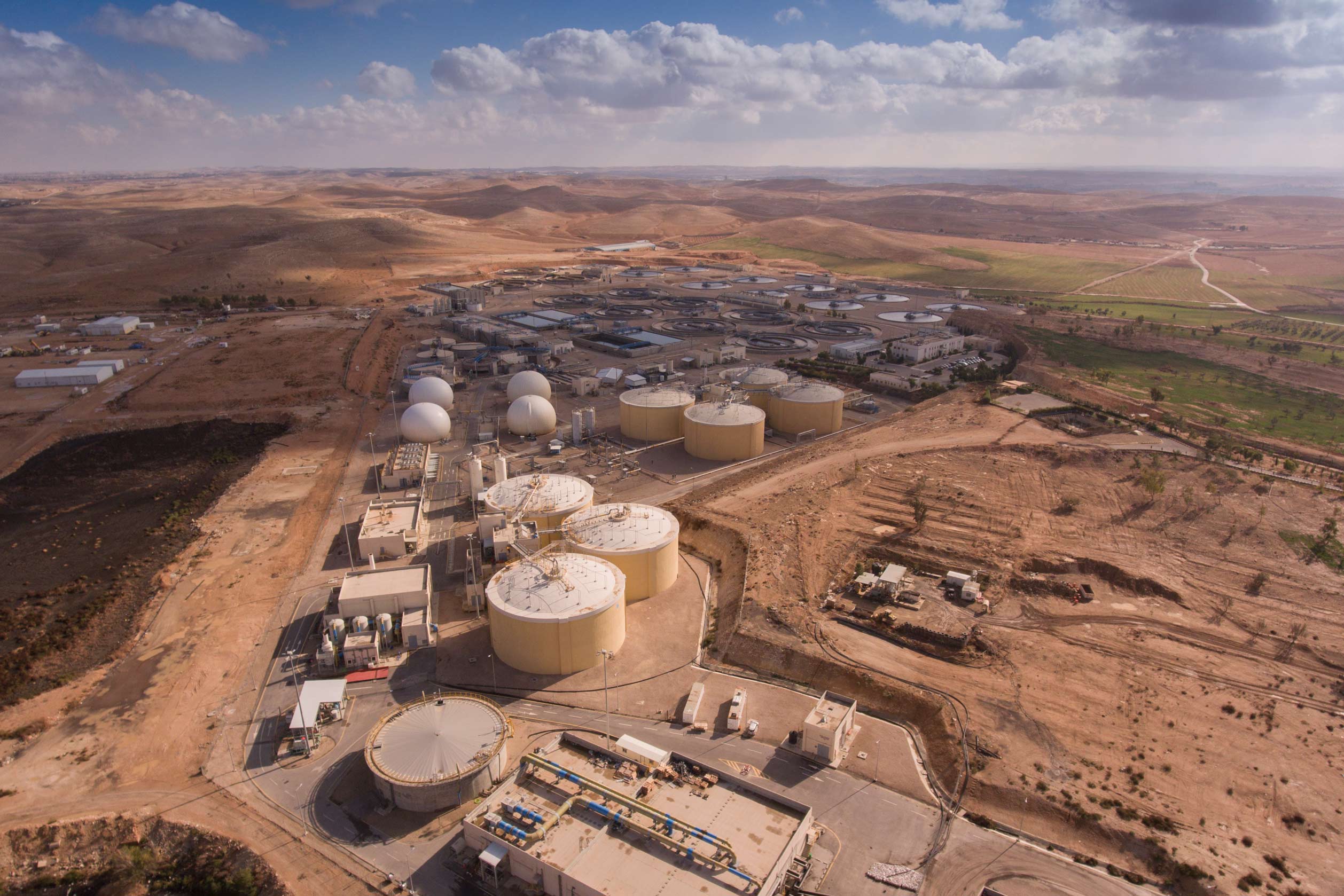
Jake Lyell for MCC
MCC supported the expansion of the As Samra Treatment Plant in Zarqa, Jordan through a public-private partnership to increase its capacity to handle sewage and produce much needed treated water for drinking and irrigation.
The plant had been nearing its capacity to treat wastewater in the region. Without an expansion, the plant might have become overloaded and its ability to treat wastewater properly would have deteriorated. The farmers who relied on treated water for irrigation would face potentially serious food safety risks and the loss of markets for their agricultural products. The As-Samra Expansion Project increased the existing plant’s capacity to treat wastewater, addressing 70 percent of the country’s wastewater demand and enabling the plant to meet the region’s wastewater treatment needs through 2025. The treated wastewater is delivered to farmers and the scarce fresh water that the agricultural sector was using is now released for household consumption in one of the most water stressed countries in the world. The public-private partnership approach in Jordan will serve as a model as MCC works with its partner countries to mobilize and attract the capital, expertise and efficiency of the private sector to deliver high-quality, affordable and sustainable development outcomes.
Water Productivity and Irrigation
Increasing populations and changing weather patterns are reducing the availability and reliability of water supplies. Irrigation is the largest user of water globally. For many of our country partners, agriculture is a large share of the national economy and one of the largest employers. Better and more efficient use of water in agriculture is a critical element of economic growth and poverty reduction.Improved Irrigation and Market Access for Moldovan Farmers

Jake Lyell for MCC
MCC
MCC's five-year, $262 million compact with Moldova helped organize water users associations that manage modern irrigation systems, supporting the production of high-value agricultural products.
For the last two decades, Moldovan agriculture suffered from low productivity, contributing to high rates of rural poverty. With its fertile soils, relatively long growing season, and proximity to both European Union and former Soviet markets, Moldova is ripe to regain competitiveness in high-value agriculture. High-value agriculture includes all fruit, vegetable and nut crops that command higher market prices and generate higher levels of income for farmers than traditional cereal crops. But constraints like a shortage of reliable water, lack of financing, and limited access to markets and technology held Moldovan producers back. The MCC-funded Transition to High Value Agriculture Project was developed to address these constraints.
As part of its $262 million compact with Moldova, MCC helped organize 10 water user associations to manage and maintain irrigation systems rehabilitated by the compact’s $130 million agriculture project. The new water user associations are an important example of a transparent and successful locally managed governance system in Moldova that can serve as an effective model for the future. The project also expanded access to financing so farmers can invest in their farms, and helped farmers grow higher-value crops and diversify their export markets. By diversifying export markets and integrating more tightly with Europe, the Moldovan economy will be better positioned to grow and withstand change in the produce market.
Water and Natural Resources Management
Protection of watersheds and corresponding natural systems, combined with strategic engineered solutions, is critical to protecting communities from floods and droughts; providing safe, clean, and reliable water; and promoting ecological for forests and fisheries.Improving Energy Generation and Sustainable Land Use in Malawi
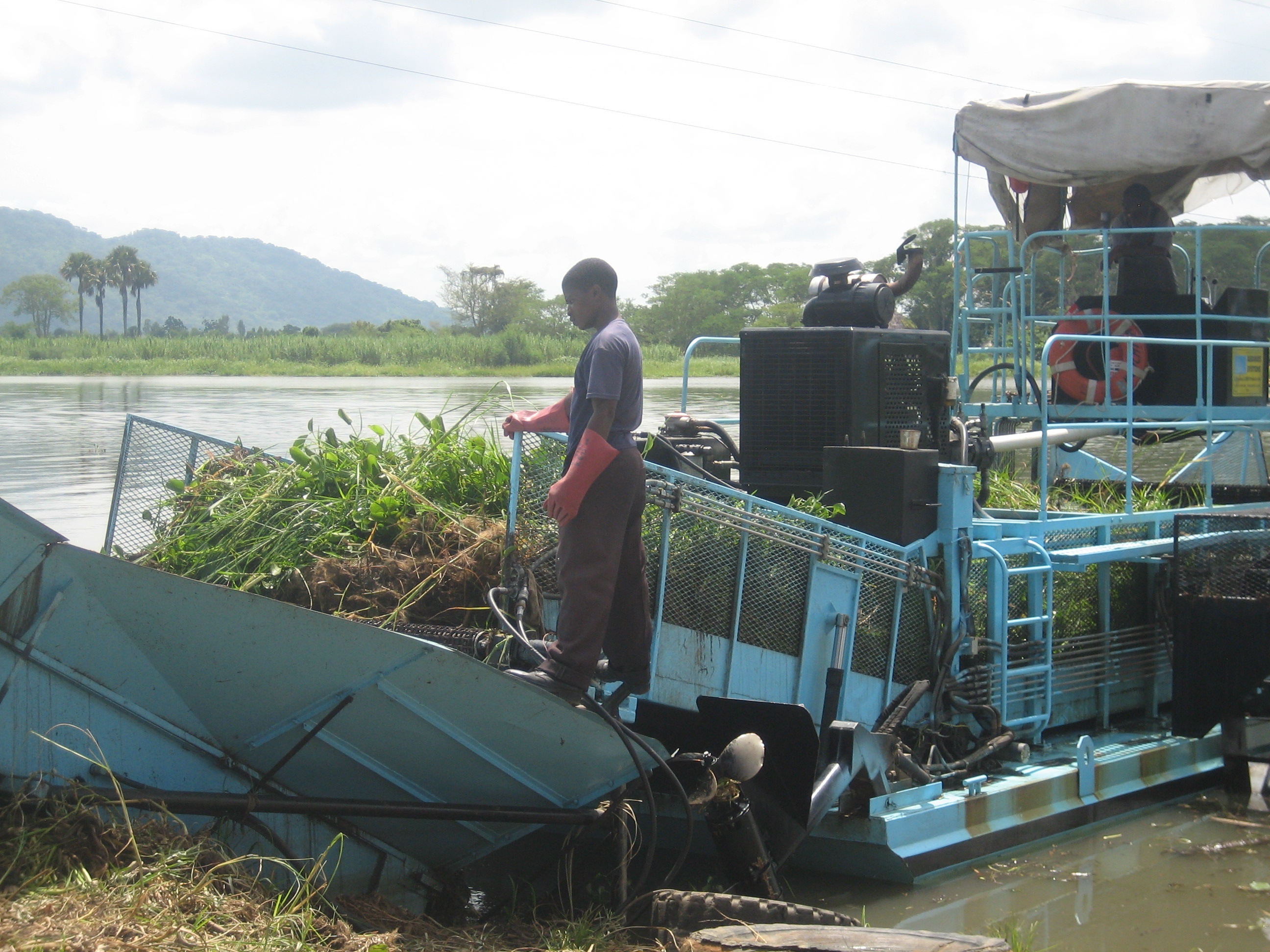
A two-man crew operates a weed harvester on the Shire River in Malawi to keep the hydroelectric plant from being damaged by over growth.
MCA-Malawi
MCC’s $351 million compact with the Government of Malawi, which ended in 2018, focused on reducing energy costs and improving productivity in the agriculture, manufacturing and services sectors. The compact also included a component to address the environmental and social factors that are impacting Malawi's hydropower plants.
Securing Water Access for the Future in Mongolia
In less than three decades, the population of Mongolia’s capital city of Ulaanbaatar has nearly tripled in size. If the sustainable supply of water is not increased, MCC estimates that the city’s demand for water will exceed the current supply, hindering economic growth and quality of life.MCC’s Mongolia Water Compact aims to provide a sustainable supply of water, stemming the impact of an impending water crisis and supporting private sector-led economic growth in Ulaanbaatar. The MCC compact will expand the available water supply for people and businesses through infrastructure development, introducing new technology and capacity building. The compact’s Water Supply Project will support the construction of new groundwater wells, a state-of-the-art water treatment plant, and construction of a new wastewater recycling plant. Additionally, the Water Supply Project will support policy reforms that enhance the long-term sustainability of Ulaanbaatar’s water supply. These investments will increase the supply of water to Ulaanbaatar by more than 80 percent, putting the city on a better footing to sustain its future economic growth.
The Government of Mongolia will also contribute $111.8 million USD to support the investment, which is among the largest partner country contributions in MCC’s history.


